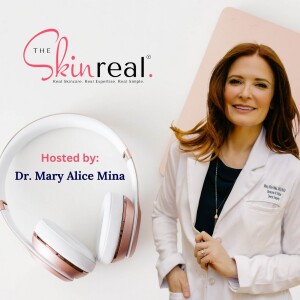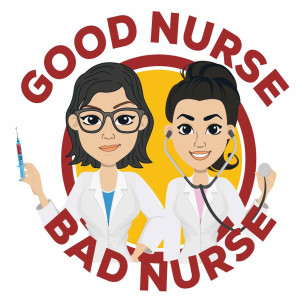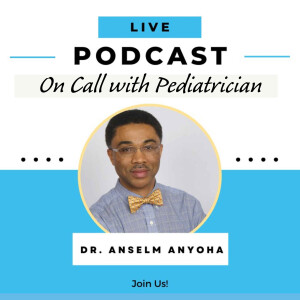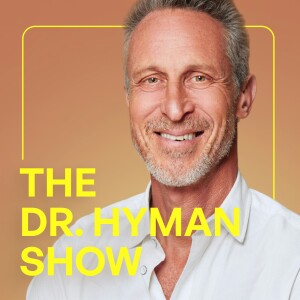

Get Dr. Mina’s Ultimate (Affordable) Skincare Guide here.
In this episode, Dr. Mina sits down with board-certified dermatologist Dr. Brenda Dintiman to unpack the complex (and often overlooked) relationship between menopause and skin health. From the impact of hormone replacement therapy to the truth about collagen supplements, they explore how hormonal shifts affect your skin—and what you can do about it.
You’ll hear about common skin changes during menopause, the surprising role alcohol plays in skin aging, and how diet, lifestyle, and targeted supplements can make a real difference. They also dive into hot flashes, hydration, and why a personalized, holistic skincare approach matters more than ever.
Whether you're approaching menopause, in the thick of it, or supporting someone who is—this conversation offers valuable, judgment-free insight into caring for your skin through every stage.
Key Takeaways:
- Hormone replacement therapy can lead to skin changes like acne.
- Progesterone may trigger acne in some menopausal women.
- Estrogen helps control sebum production, affecting acne.
- Skin dryness and loss of barrier function are common during menopause.
- Women may experience hair thinning and increased facial hair during menopause.
- Diet and lifestyle choices significantly impact skin health.
- Non-alcoholic beverages can help reduce alcohol consumption socially.
- Skin care treatments like micro-needling and chemical peels can be effective.
- Understanding hormonal balance is crucial for effective treatment.
- Education about menopause and hormone therapy is still needed. Cutting down on alcohol can significantly improve skin appearance.
- Collagen supplements may help, but should be part of a broader skincare routine.
- Starting with basic skincare like sunscreen is essential.
- Vitamin D and B6 are important supplements for skin health.
- Menopause can lead to hormonal changes that affect skin.
- Hot flashes can be managed with hormone replacement therapy.
- Topical estrogen can be beneficial for skin hydration.
- Testosterone may be helpful in managing menopausal symptoms.
- Consulting with a professional can provide personalized care.
- It's important to have a supportive network during menopause.
In This Episode:
03:59 Hormone Replacement Therapy: Benefits and Challenges
07:02 Skin Changes During Menopause
09:01 Navigating Hormonal Treatments
12:13 Skin Care Strategies for Menopausal Women
14:59 Diet, Lifestyle, and Skin Health
20:37 The Impact of Alcohol on Skin Health
22:35 Collagen Supplements: Do They Work?
24:33 Starting Small: A Holistic Approach to Skin Care
25:44 Essential Supplements for Menopausal Skin
29:25 Navigating Menopause: Hormonal Changes and Skin Care
30:23 Managing Hot Flashes and Excess Sweating
33:16 Top Tips for Navigating Menopause
Dr. Brenda Dintiman has more than 30 years of experience in medical and cosmetic dermatology treatments. She is the founder of DermUtopia Wellness and is a thought leader in the use of telemedicine to diagnose and treat patients.
Her areas of focus include cosmetic procedures, skin cancer prevention and removal, skin changes through menopause, acne and hair loss.
Dr. Dintiman is a long standing Washingtonian featured top doctor from 2005-2025, and has also been recognized for her excellent patient care by Arlington Magazine, Northern Virginia Magazine, and Modern Luxury Media Magazine.
Follow Dr. Brenda Dintiman here:
https://www.instagram.com/dermutopiadermatologist?igsh=MTBhdmdrYmI4OGNxaQ==
https://www.facebook.com/share/14gcYWnMEC/?mibextid=wwXIfr
https://dermutopia.com/
Follow Dr. Mina here:-
https://instagram.com/drminaskin
https://www.facebook.com/drminaskin
https://www.youtube.com/@drminaskin
https://www.linkedin.com/in/drminaskin/
For more great skin care tips, subscribe to The Skin Real Podcast or visit www.theskinreal.com
Baucom & Mina Derm Surgery, LLC
Website- https://www.atlantadermsurgery.com/
Email - scheduling@atlantadermsurgery.com
Contact - (404) 844-0496
Instagram - https://www.instagram.com/baucomminamd/
Thanks for listening!
The content of this podcast is for entertainment, educational, and informational purposes and does not constitute formal medical advice.
More Episodes
All Episodes>>Create Your Podcast In Minutes
- Full-featured podcast site
- Unlimited storage and bandwidth
- Comprehensive podcast stats
- Distribute to Apple Podcasts, Spotify, and more
- Make money with your podcast












